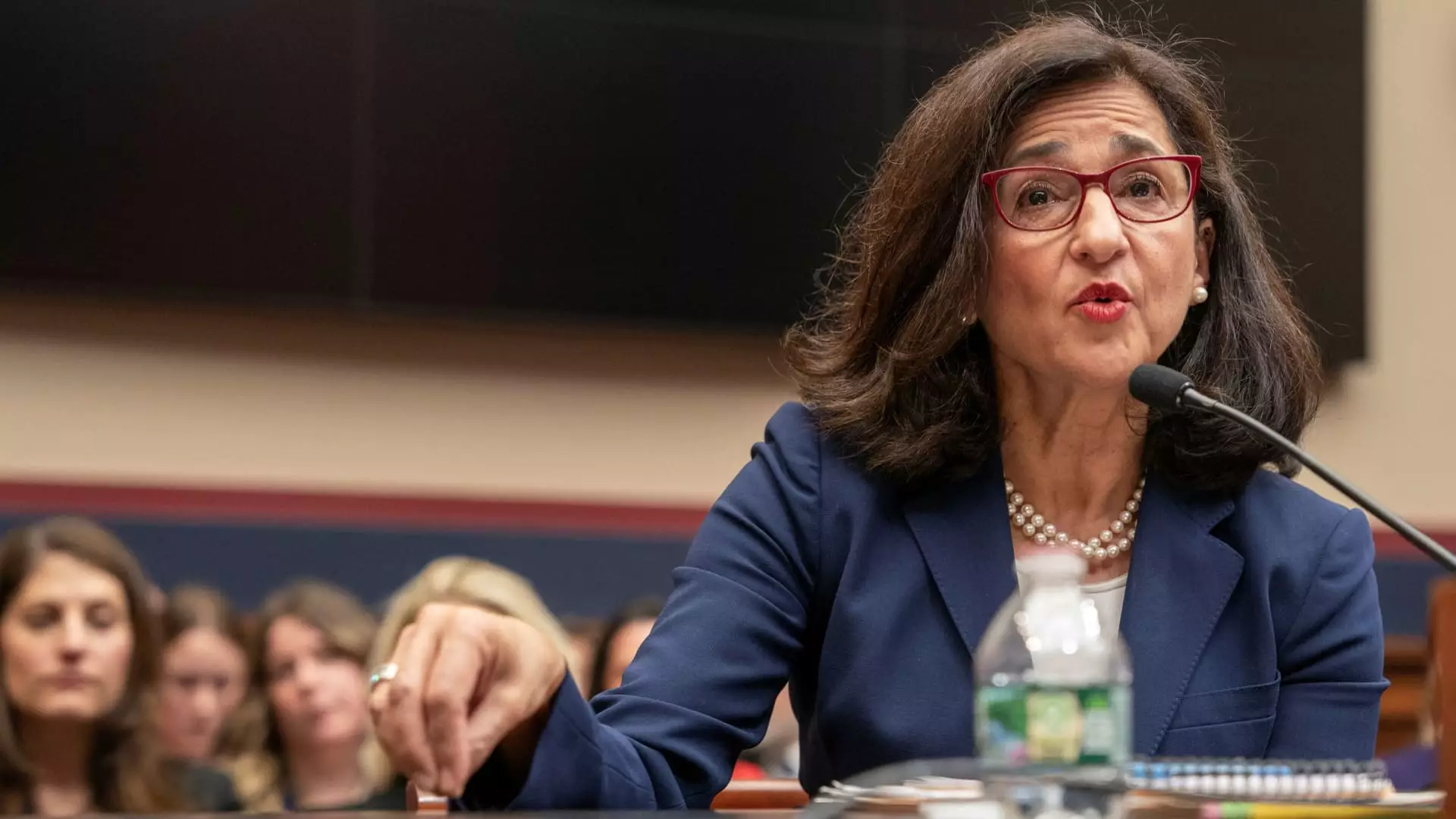The recent resignation of Nemat “Minouche” Shafik, the president of Columbia University, has sparked a wave of controversy and discussions on the Manhattan campus. Shafik stepped down after facing months of criticism over protests related to the war in Gaza. Her decision to resign came after being targeted by anti-war protesters and House Republicans in Congress for various reasons. In her resignation letter to the Columbia community, Shafik acknowledged the progress made during her tenure as president but also highlighted the challenges and turmoil experienced while trying to navigate divergent views among the community.
One of the key points of contention during Shafik’s presidency was the handling of protests on the Columbia campus. Anti-war protesters set up encampments in solidarity with Palestinians, leading to clashes with the New York City Police Department, who were requested to clear the demonstrations on two occasions. These actions drew further criticism and added to the overall tension on the campus. Additionally, Shafik faced questions from a House committee regarding her management of antisemitism at the university, further complicating her position as president.
Shafik’s resignation, effective immediately, was a decision made after reflecting on the challenges ahead and considering the best interests of Columbia University. The Board of Trustees, while regretting her departure, accepted Shafik’s decision and announced Katrina Armstrong as the interim president. Armstrong, currently the CEO of the Columbia University Irving Medical Center, expressed optimism and determination in leading the university through a period of renewal and community strengthening.
Groups like Columbia Students for Justice in Palestine welcomed Shafik’s resignation, citing it as a response to the demands for divestment and accountability from the student body. The protests and controversies surrounding Shafik’s tenure reflect broader tensions on college campuses across the United States related to issues of free speech, discrimination, and political divisions. The challenges faced by Columbia University are part of a larger discourse on academic principles and institutional values.
The resignation of university presidents due to political pressure and controversies is not unique to Columbia University. In recent months, several university heads, including Liz Magill of the University of Pennsylvania and Claudine Gay of Harvard University, have stepped down following criticism from lawmakers and political leaders. The trend of universities becoming targeted for handling sensitive issues like antisemitism underscores the challenges faced by academic institutions in navigating complex political landscapes.
The resignation of Nemat “Minouche” Shafik as the president of Columbia University highlights the intricate relationship between academic leadership, student activism, and national politics. The events leading to her departure serve as a reminder of the importance of upholding institutional values, promoting diversity of voices, and addressing societal issues with sensitivity and fairness. As Columbia University transitions to new leadership, the university community faces an opportunity for reflection, dialogue, and growth in the pursuit of academic excellence and social responsibility.


Leave a Reply